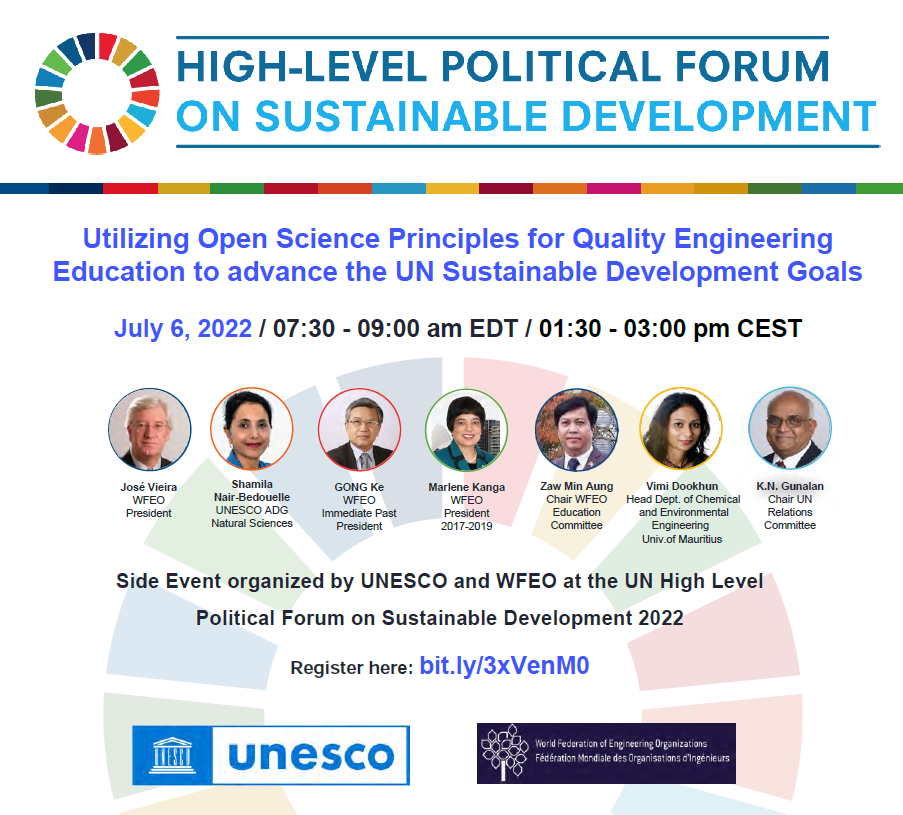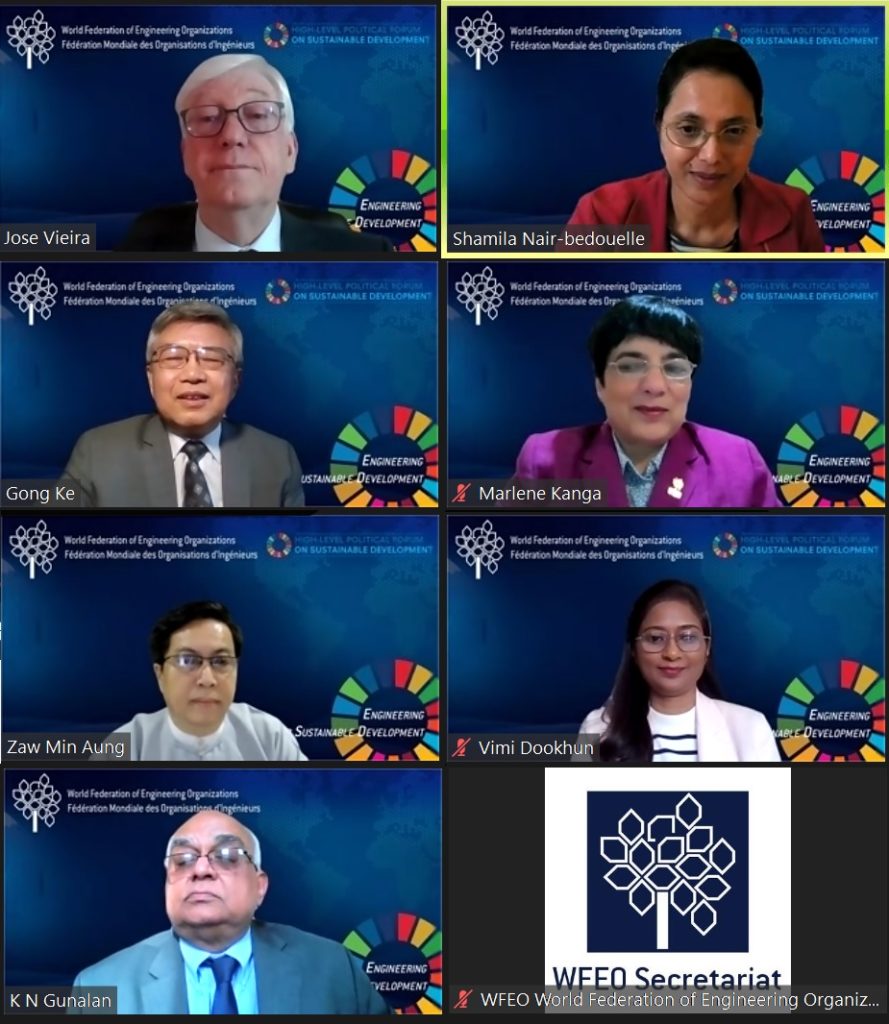
WFEO organized, with the support of UNESCO, the side event “Utilizing Open Science Principles for Quality Engineering Education to advance the UN Sustainable Development Goals” during the United Nations High-level Political Forum on Sustainable Development (HLPF) on 6 July 2022.
Background
The United Nations High-level Political Forum on Sustainable Development (HLPF) is held annually under the auspices of the Economic and Social Council and is the main United Nations platform on sustainable development. It has a central role in the follow-up and review of progress for the 2030 Agenda for Sustainable Development at the global level. The theme for the HLPF 2022 was “Building back better from the coronavirus disease (COVID-19) while advancing the full implementation of the 2030 Agenda for Sustainable Development”. The HLPF 2022 also focused on Sustainable Development Goals #4 – quality education, Goal#5 – Gender Equality, Goal#14 – Life below water, Goal#15 – life on land, and Goal#17 – Partnerships for the Goals.
It is crucial that UNESCO, which has an important mandate for Education and the World Federation of Engineering Organizations (WFEO), with members from more than 100 nations representing more than 30 million engineers, have a presence and a voice at this important event. WFEO is the Co-Chair of the Scientific and Technological Community at the UN Major Group of Stakeholders (MGoS).
The proposed side event addressed the key theme of HLPF 2022 in demonstrating how Member States can build back better in a post COVID environment especially to provide the necessary quality engineering education and training, essential to advance the 2030 Agenda for sustainable development.
The side event presented the achievements of the past two years and work being done to build back better in the post COVID environment to advance Goal#4 – Education, Goal#5 – Gender Equality and Goal#17 – Partnerships for the Goals.
Event Outcomes
The event presented the work being done by WFEO and its partners in international engineering to align its engineering education’s benchmarks with the UN SDGs, to build capacity in engineering education and to provide essential training and development for professional engineers, technologists and technicians. The work is supported by UNESCO.
The event described the projects and how advanced technology and Open Science Principles are being applied for an inclusive approach that leaves no one behind. The education and training one is accessible to all, at no cost, especially to women and young people in developing countries. The presentations showed how barriers to learning, including language, are addressed, and the road map for practical and tangible actions to build capacity in engineering education. The economic, social and environmental benefits of the projects are global and long lasting and support the advancement of other sustainable development goals through the application of engineering and technology. The information presented are invaluable to member states in understanding the facility being provided and how it can be accessed for the benefit of all.
Event Format
Expert speakers from Asia, Europe, Oceania, Middle East, Africa and Americas and who represent diversity in terms of gender and age presented on various aspects of the projects, progress made to date and plans for further work:
- Moderator/Chair: Prof Dr Jose Vieira, WFEO President, Portugal
- Dr Shamila Nair-Bedouelle, UNESCO Assistant Director General Natural Sciences Sector, Paris: UNESCO Strategies and Open Science principles for engineering education in the post COVID environment
- Prof Gong Ke, WFEO Immediate Past President, China: The changes that engineering needs to make to meet the challenges of the future
- Dr Marlene Kanga, WFEO President 2017-2019, Australia: The changes to the international benchmark for engineering education, capacity building and training projects led by WFEO
- Dr Zaw Min Aung, Chair WFEO Committee for Education in Engineering, Myanmar: Capacity building in engineering education, case studies from projects in Africa
- Dr Vimi Dookhun, Senior Lecturer, Head Department of Chemical and Environmental Engineering, University of Mauritius: The importance of quality engineering education in Small Island Developing States and the development of young engineers
- Dr K N Gunalan, Chair WFEO UN Relations Committee, Co-Chair Scientific and Technological Community, UN Major Group of Stakeholders, USA: Closing remarks
The recording is available by clicking on the below image. The video contains timestamps to go directly to each speaker.

For more information:
WFEO Biennial Report 2019-2021
JUL
2022
